How Jen Silverman Turned Family Drama Into a Hit Play
The Roommate is running on Broadway at the Booth Theatre.
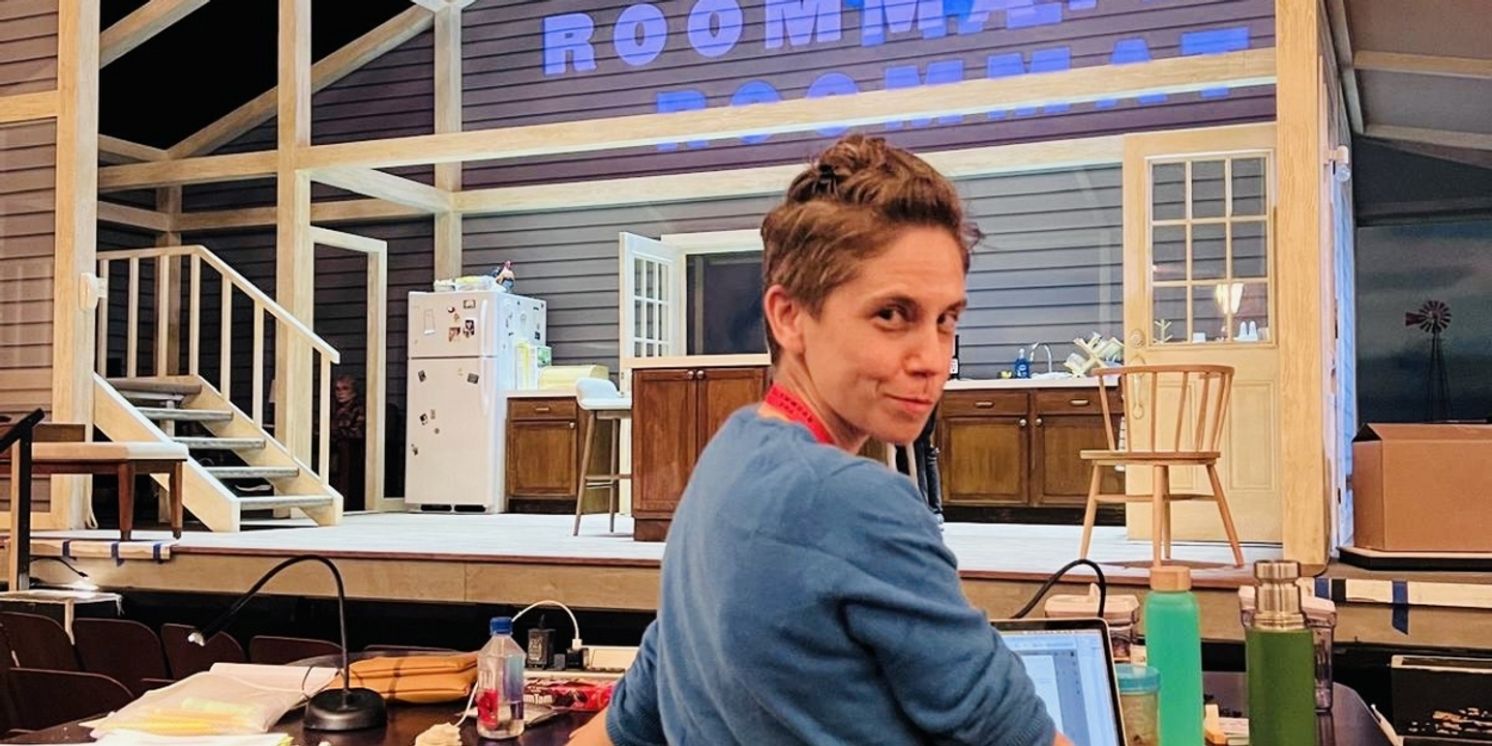
It's been almost a decade since Jen Silverman wrote The Roommate- a play that is making its Broadway debut this season with the help of the stage and screen power duo that is Mia Farrow and Patti LuPone.
In this one act play about second acts, two very different middle-aged women come together in a peculiar circumstance and form an unexpected, life-changing friendship. It's a story that sounds inherently theatrical... and yet its inspired by a real event from Silverman's past. They recently checked in with BroadwayWorld to chat about how the play came to be, watching audiences respond, and so much more!
Can you talk to me a little bit about the origin of how you came to write this play?
I didn't write the play until I'd been living in [New York City] for a few years. I had met my life partner, Dane Laffrey, who's a scenic designer. Dane and I had started dating, but I had not yet met his mother. And, his mother at that time was living in the Midwest. She had a female roommate for the first time, and she was telling him sort of the complexities and the curiosities of navigating that kind of intimacy with another woman at both of those stages in their lives, which of course I was completely fascinated by. So, I was hearing these stories from Dane, and then, and of course sort of, one can't help embellishing a story when one hears it, right?
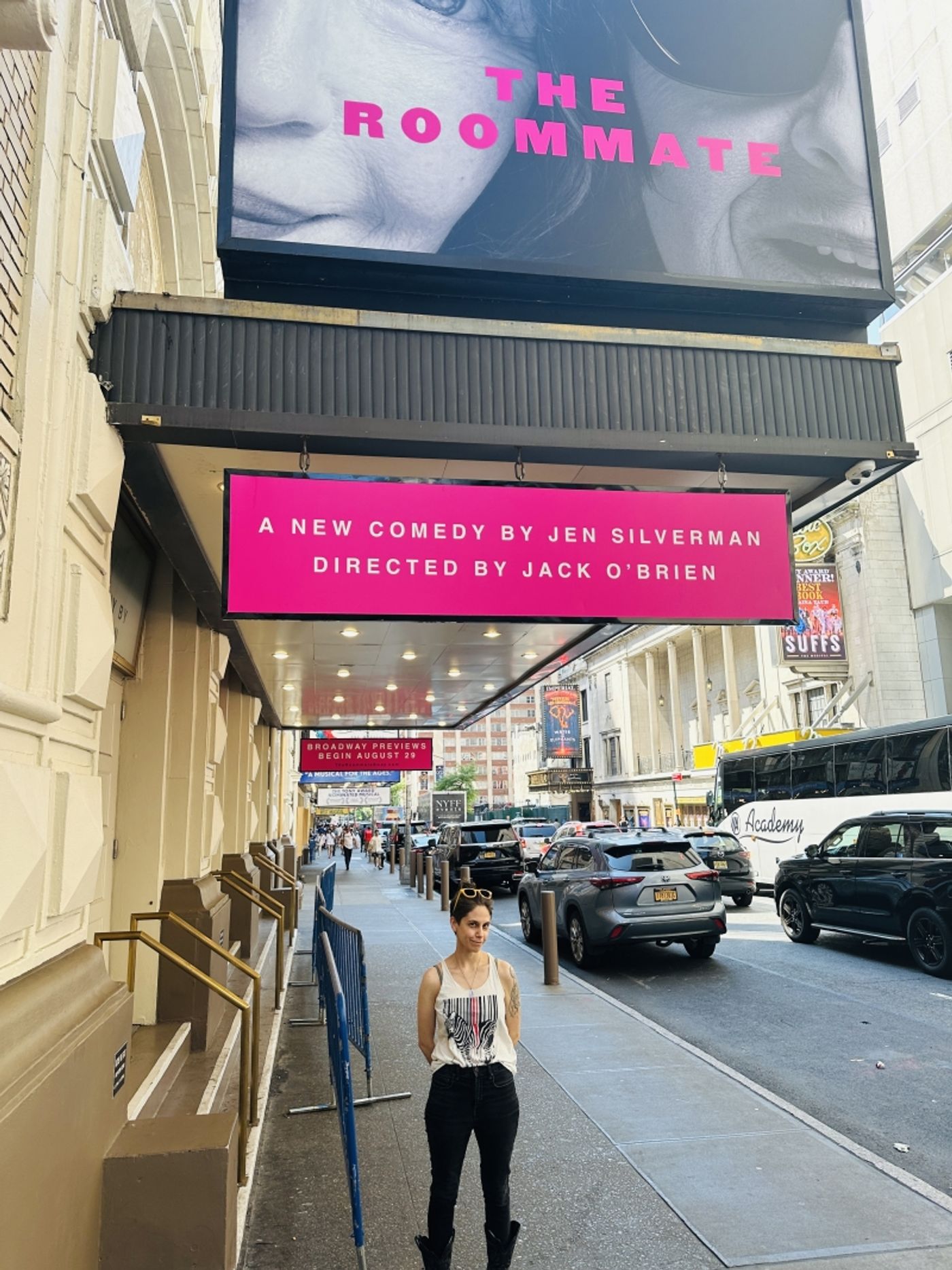 Her roommate had some eccentricities... and so of course I was really interested in those. And then the end of the story is that her roommate vanished quite suddenly in the middle of the night, which I thought was completely thrilling! It turned out to be a very boring, regular life reason for that... but the breadcrumb trail of facts grew into the structure of the play. And then from there, I was elaborating wildly and sort of really digging into these characters. Then I met Dane's mother for the first time when the play premiered at the Humana Festival.
Her roommate had some eccentricities... and so of course I was really interested in those. And then the end of the story is that her roommate vanished quite suddenly in the middle of the night, which I thought was completely thrilling! It turned out to be a very boring, regular life reason for that... but the breadcrumb trail of facts grew into the structure of the play. And then from there, I was elaborating wildly and sort of really digging into these characters. Then I met Dane's mother for the first time when the play premiered at the Humana Festival.
Wow that's crazy!
It was nerve-racking. I don't recommend it! [Laughs]
Has it been like weird at all living with these characters for as long as you have and seeing them evolve through the different productions until now?
I should say I've worked on two productions, which was the premiere at Humana directed by Mike Donahue, who's a cclose collaborator. And then Mike and I did a second production at Williamstown together in 2017. But, otherwise the play has really just been having a life of its own over the past decade, all across the country. Phylicia Rashad did it at Steppenwolf. It's happened at South Coast Rep...
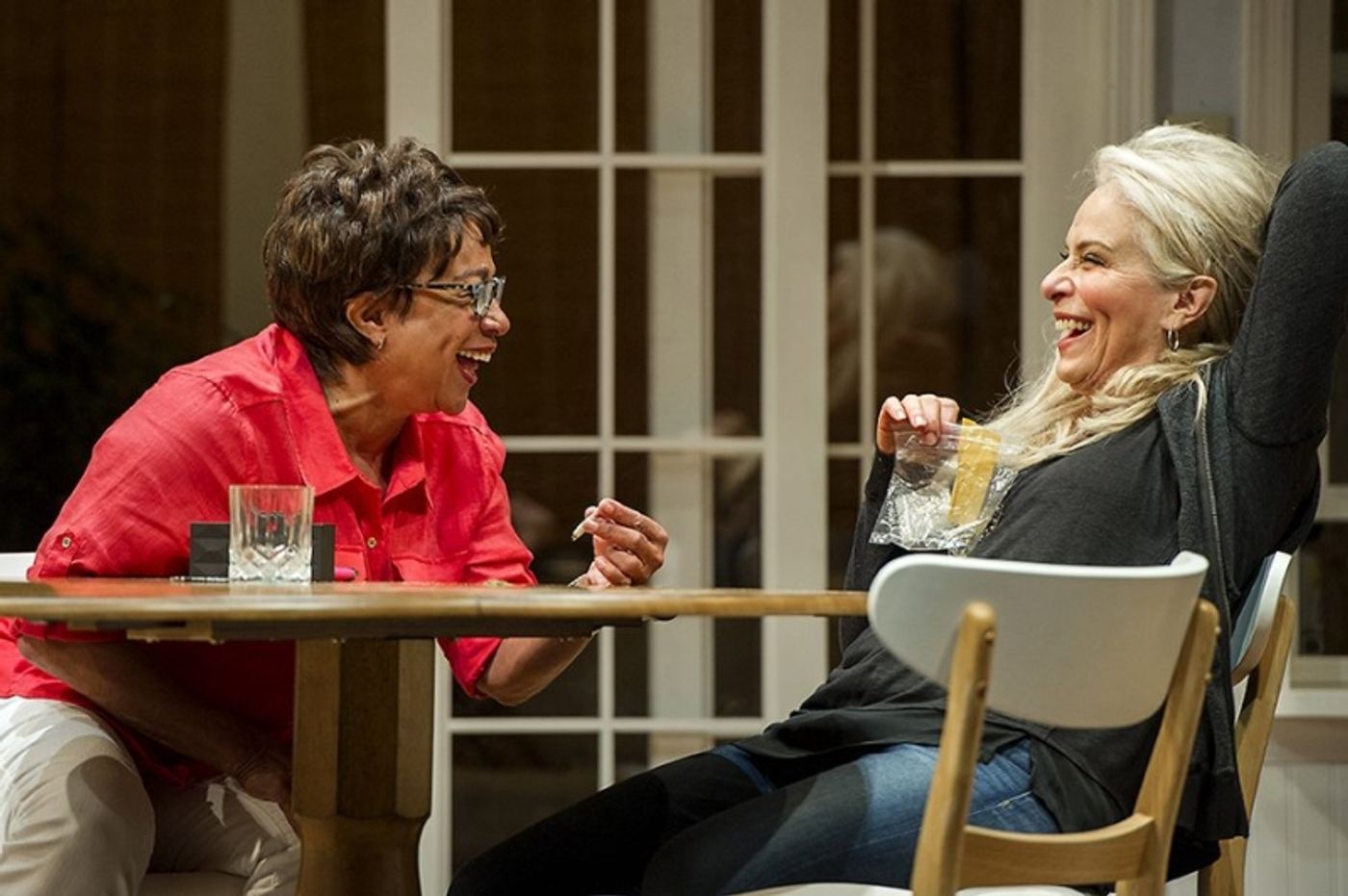
Photo Credit: Daniel Rader
I think of most of my plays as invitations to not only an audience, but also to the collaborators working on the play. And, so some of what has been really exciting is to see how that invitation has been taken up and how Robyn and Sharon shift and change by necessity when they're inhabited by different actors with different backgrounds and different life experiences.
And in this case, right now, Mia and Patti are coming to the play with a completely different set of life experiences than when I worked on it in 2017. And so I think by necessity, Robyn and Sharon shift and grow, whether they are played by actors in their 50s or actors in their 70s or actors in their 60s. To me, those changes are what makes it so exciting to see how the play is having a life, because it's built to hold a multiplicity of approaches and I think it does.
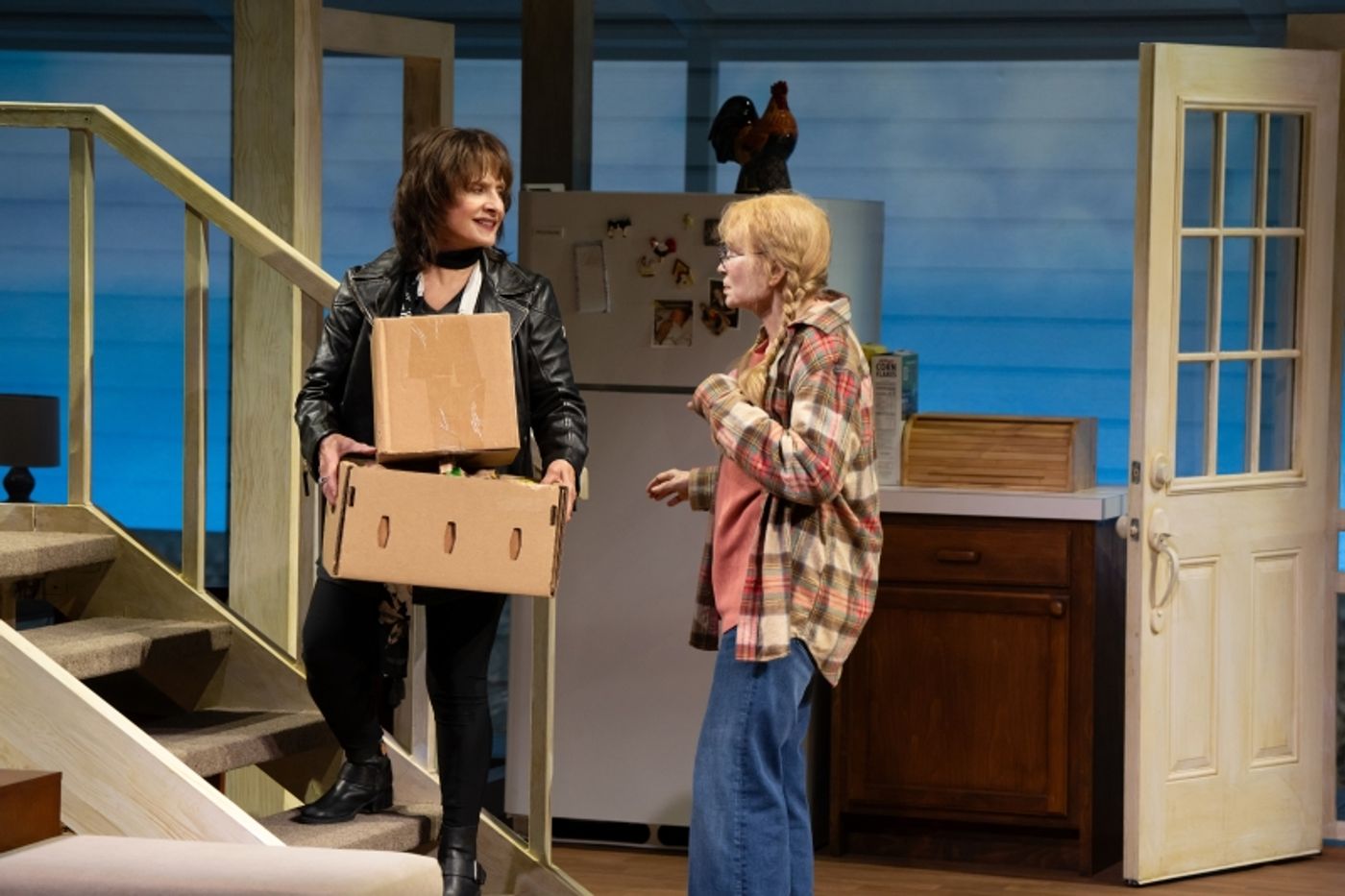
Photo Credit: Julieta Cervantes
What's it like being in a room with the two of them?
They're such legends. But the thing that I find most impressive is how kind they are. They are such hard workers. They are such artists. They are so serious about their craft. It should go without saying, but I'm really impressed when people who occupy such legendary status are interested in the work and the art above all. I think just the minute I met them, they wanted to get into it. They were so interested in the craft and so uninterested in their own iconic status. I'm humbled by them, but I'm also constantly impressed. I love that.
And I don't think I've ever heard anyone say a bad thing about Jack O'Brien. What's it like working with him?
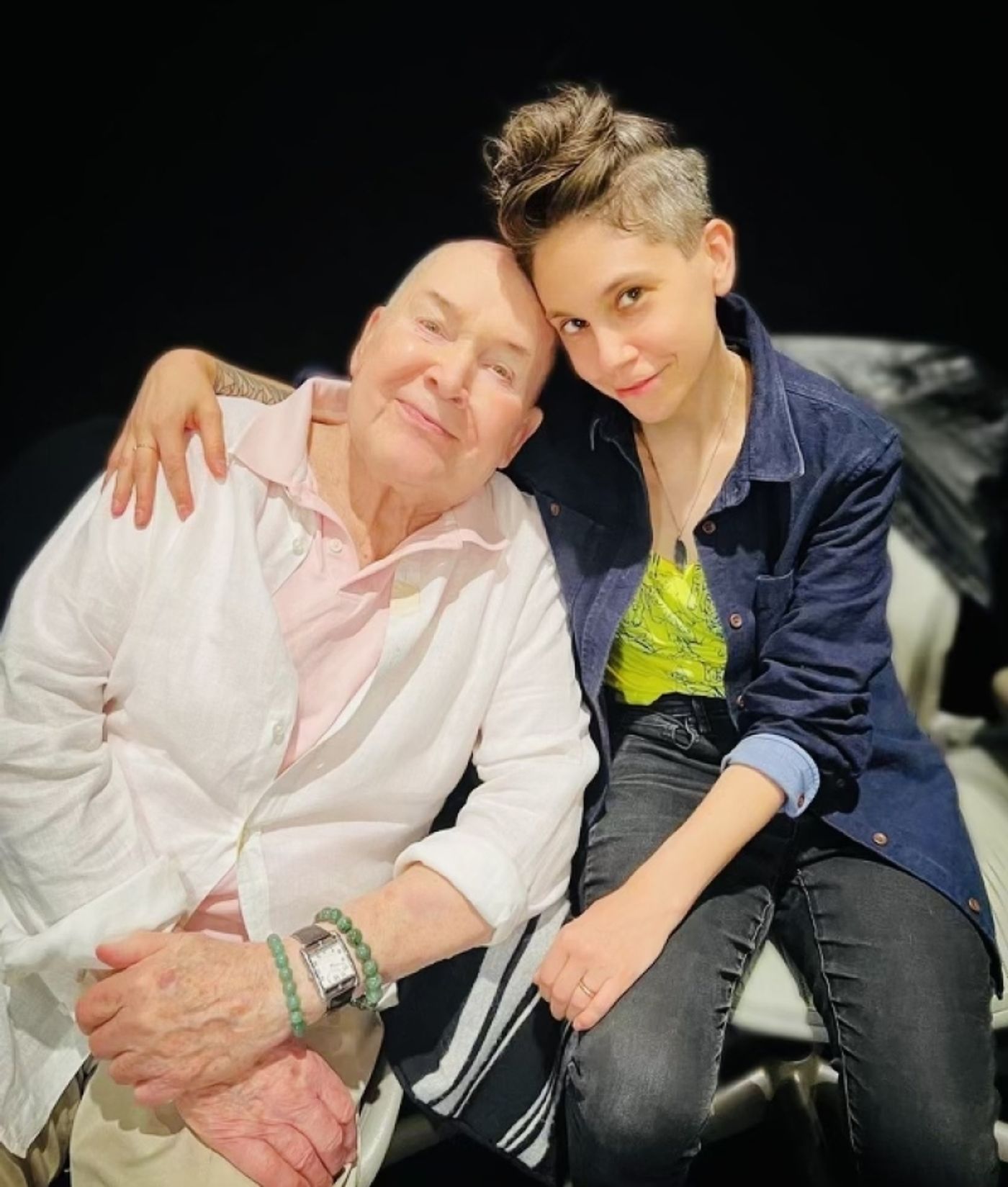 Oh my God, he is wonderful. He is he's so funny. He's so smart. On he's so curious. He's interested in interrogating things. Often when we're working together, if I have an impulse or the actors have an impulse or the designers and tech would have an impulse, his answer is like, 'Well, let's look at it. Let's understand it. What are we actually talking about?' And then once we understand it, it might be yes or no, or what about this? But there is just a willingness to interrogate.
Oh my God, he is wonderful. He is he's so funny. He's so smart. On he's so curious. He's interested in interrogating things. Often when we're working together, if I have an impulse or the actors have an impulse or the designers and tech would have an impulse, his answer is like, 'Well, let's look at it. Let's understand it. What are we actually talking about?' And then once we understand it, it might be yes or no, or what about this? But there is just a willingness to interrogate.
Who do you think this play is for? What kind of audience would love it?
What has been so fascinating about these preview audiences is that they have been so different from each other. I love that! And they have been so engaged and so excited. There have been people in that audience where I've said like, 'Oh yes, I can see why you're here.' And then there have been people who I've been like, '...no idea what made you decide to come here, but you seem really excited to be here!' What a thrill.
In some ways I feel like the play, it's a comedy, it's a little dark, it's a little cheeky is asking questions about what if we didn't accept the limitations that we were offered by our society, by perceptions of our age or our gender? What if we took a step toward the unknown and toward danger and risk and naughtiness?
I think perhaps because of that, it is a play that is for anyone. It's like people who thrill to that question aren't necessarily thrilling to that question because of their age or their gender. It's a question that I think is ultimately a human question. So perhaps, I guess I should say I'm learning to be less surprised by how different the people in the audience all seem to be from each other. That there is no monolithic audience and yet perhaps because of that.
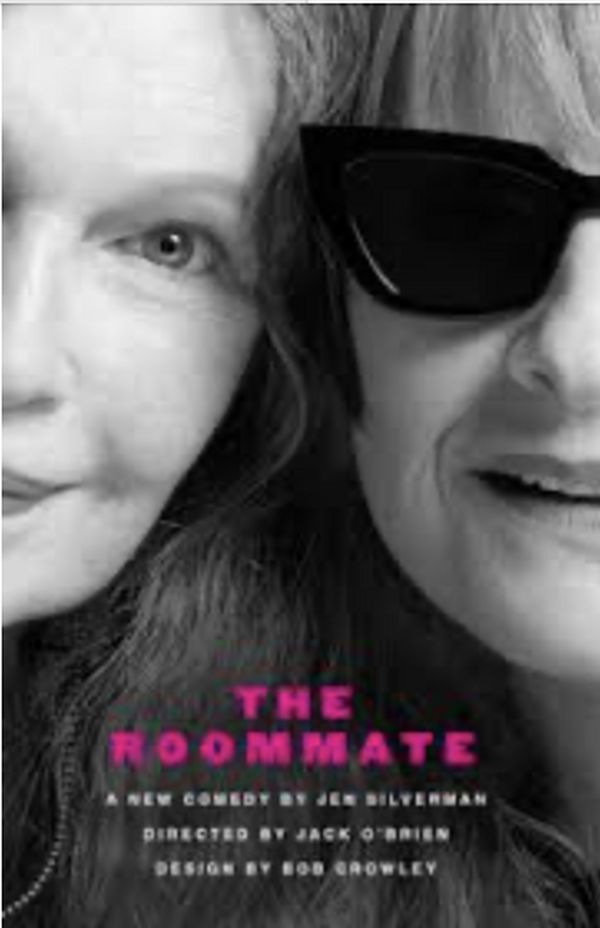
|
Powered by
|
Videos


